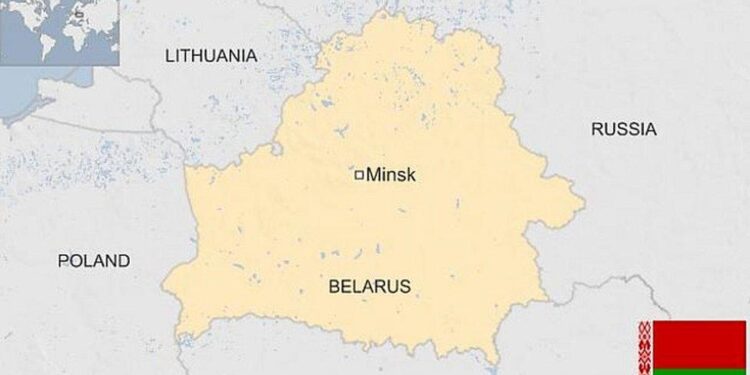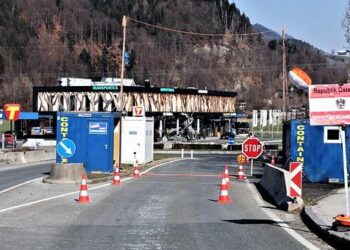Belarus finds itself navigating a precarious geopolitical landscape, as mounting internal pressures and external tensions push the country to the brink. In the latest analysis by Clingendael, experts detail how Minsk’s strategic decisions have placed it on “thin ice,” with implications that reverberate far beyond its borders. This article explores the factors contributing to Belarus’s fragile standing and what lies ahead for the nation caught between powerful regional forces.
Belarus Faces Growing Geopolitical Isolation Amid Escalating Tensions
The geopolitical landscape surrounding Belarus is rapidly deteriorating as the country finds itself increasingly isolated on the international stage. Recent actions taken by Minsk-ranging from military cooperation with Russia to crackdowns on opposition forces-have drawn widespread condemnation from Western capitals. Crucially, Belarus’s reliance on Russian support has deepened, alienating many traditional partners and heightening tensions in the region. Sanctions targeting key sectors of the Belarusian economy, including energy and finance, have been intensified by the EU and the US, aiming to pressure the government towards democratic reforms.
Key impacts include:
- Restricted access to international banking and trade networks
- Limitations on diplomatic engagement with European institutions
- Increased scrutiny and monitoring by NATO along Belarusian borders
Behind the scenes, Minsk is attempting to diversify its alliances, exploring closer ties with China and other non-Western powers to circumvent the constraints imposed by Western sanctions. However, these efforts remain tentative and insufficient to offset the economic and political challenges it faces. The country’s geopolitical balancing act now teeters precariously, with potential ripple effects for regional security dynamics. Below is an overview of Belarus’s current international alignments highlighting the shifting allegiances:
| Country/Region | Relationship Status | Recent Developments |
|---|---|---|
| Russia | Strategic Ally | Enhanced military cooperation, energy dependence |
| European Union | Severely Strained | Sanctions, diplomatic exclusion |
| China | Emerging Partner | Exploring trade deals and investments |
| United States | Hostile | Increased sanctions, support for opposition |
Economic Strains and Social Unrest Threaten Internal Stability
Mounting economic pressures have significantly eroded public confidence in the government’s capacity to maintain stability. With inflation rates soaring and real wages stagnating, everyday life for many Belarusians becomes increasingly precarious. The country’s reliance on energy imports and vulnerabilities in its export sectors further amplify economic fragility. Recent data indicates sharp declines in key industries, fueling widespread anxiety as citizens grapple with the tangible impacts of limited financial security.
Social tensions have escalated in response to these hardships, marked by a series of localized protests and growing civil discontent. Observers note that the government faces challenges managing:
- Youth unemployment rates exceeding 15%
- Shortages in essential goods and services
- Restrictive measures on independent media
- Increasing reports of political dissent
| Indicator | Current Value | Previous Year |
|---|---|---|
| Inflation Rate | 18.7% | 12.3% |
| Unemployment Rate | 14.5% | 11.0% |
| Public Approval of Government | 42% | 57% |
These factors collectively create a precarious environment where social unrest could spiral beyond isolated incidents, potentially undermining the internal cohesion of Belarus. The government’s ability to implement effective reforms or engage in meaningful dialogue with opposition forces remains a pivotal factor in averting escalation.
Policy Recommendations for Western Engagement and Regional Security Cooperation
To effectively address the volatile situation in Belarus, Western actors must adopt a calibrated approach that balances assertiveness with strategic patience. Prioritizing targeted sanctions against key regime figures, while simultaneously expanding support for civil society and independent media, can help sustain internal resistance without escalating tensions unnecessarily. Enhanced intelligence-sharing and coordinated diplomatic pressure within EU frameworks will reinforce a unified front, signaling that destabilizing actions in the region carry tangible consequences. Moreover, fostering cross-border cultural and economic exchanges will empower Belarusian citizens and weaken the authority of state propaganda.
Regional security cooperation should leverage existing platforms but also innovate new mechanisms tailored to the unique challenges Belarus presents. This includes setting up a dedicated Eastern Partnership Security Taskforce that facilitates real-time information sharing and joint crisis response exercises among Belarus’s neighbors and Western allies. The table below outlines priority areas for such collaboration:
| Cooperation Area | Key Actions | Expected Impact |
|---|---|---|
| Border Security | Joint patrols and surveillance | Reduced smuggling and insurgent movement |
| Cyber Defense | Shared threat intelligence | Mitigated hacking and disinformation |
| Humanitarian Assistance | Coordinated aid delivery programs | Supporting vulnerable populations |
| Political Dialogue | Regular multilateral summits | Enhanced diplomatic channels |
Concluding Remarks
As Belarus navigates an increasingly precarious geopolitical landscape, its position on thin ice underscores the mounting challenges ahead. With regional tensions escalating and domestic pressures mounting, the country’s strategic choices will be closely watched by international observers. How Minsk responds in the coming months could have significant implications not only for its own future but for the stability of the wider Eastern European region.
















